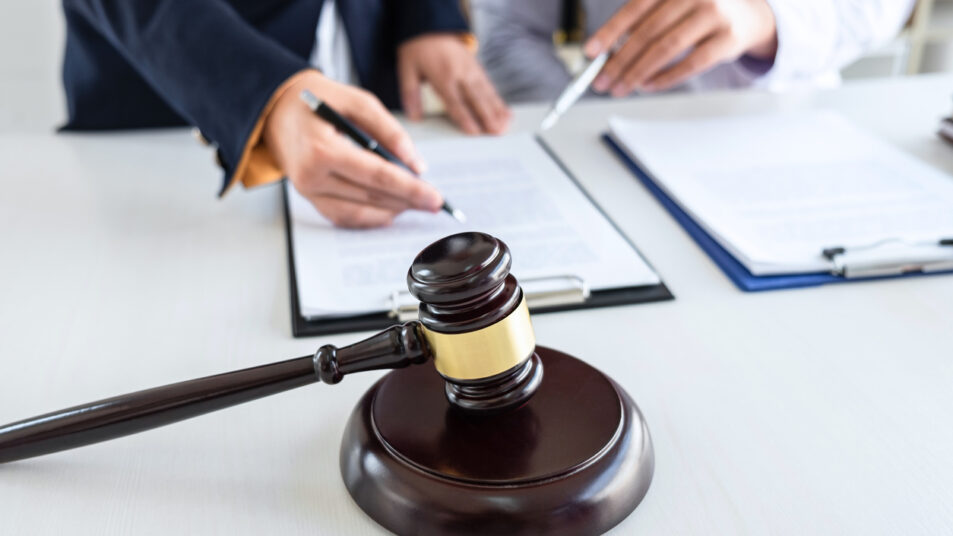Step-by-Step Guide for Filing a Personal Injury Claim
The timeline of a personal injury case can vary greatly depending on the way the accident happened, the seriousness of your injuries, the defendant’s attitude toward settlement, and the overall complexity of your case.
The steps below are general guidelines that you can refer to, even though your claim will probably differ in some respects. It’s also best to set up a consultation with an experienced personal injury lawyer to ensure your claim is filed appropriately.
Obtain Medical Care
Nothing is more important than prompt medical care, for both medical and legal reasons. Even if you feel fine, seek immediate medical treatment if you have any doubts whatsoever. Some injuries, such as certain types of head injuries, don’t always generate immediate symptoms.
If you delay seeking medical treatment, you are inviting the opposing party to claim that your injuries didn’t occur until after the accident.
Prepare Appropriate Documentation
Prepare and retain the following documentation:
- Medical records: All treatment-related documentation related to your injury.
- An accident report or police report, if one exists. If your injury occurred at work, file a report with your employer.
- Photographs of your injuries and the scene of the accident. In a car accident, the positions of the cars on the road can be particularly revealing.
- Witness statements. Get their contact information and, later, written statements.
- Your insurance policy documents.
- Any correspondence with insurance companies Record any telephone conversations.
- Expense receipts, to document your out-of-pocket expenses.
- Documentation of missed work and lost income.
- Your journal detailing your pain levels, emotional distress, difficulties in daily activities, and general quality of life.
- Legal documents such as retainer agreements, court filings (if applicable), and correspondence with your lawyer.
Since every case is different, keep any other documentation that you might need later.
Schedule a Legal Consultation
A consultation with a personal injury lawyer won’t cost you a dime, and they will almost certainly give you an honest evaluation.
Because of the way personal injury lawyers charge for their services, they have no incentive to exaggerate the value of your claim. If they offer to represent you, it’s because they believe in your claim.
Investigate the Accident and Your Injuries
Let your lawyer handle this with your cooperation. Your lawyer will probably request your medical records from the hospital, for example, or speak with an expert about your case.
Some of the critical evidence might be in the possession of the at-fault party or even a third party (cell phone records, for example, if the at-fault party was texting while driving).
Prove Negligence
Not every personal injury claim is based on negligence, but most are. To prove negligence, you need to prove the following elements of your claim:
- The defendant owed you a duty of care.
- The defendant breached their duty of care to you.
- You suffered a physical injury.
- The defendant’s breach of duty caused the injury you suffered.
- Your injury was a foreseeable consequence of the defendant’s negligence.
In many personal injury cases, only one or two of these elements will be at issue.
Begin Settlement Talks
If your claim is reasonably strong, the at-fault party (or their insurance company) is likely to prefer settlement to courtroom litigation. Let your lawyer do the negotiating for you because insurance adjusters are savvy negotiators.
File a Lawsuit
You may or may not need to file a lawsuit. You certainly do, however, if the statute of limitations deadline is looming. In Illinois, for instance, you typically have until two years after an accident to file a personal injury lawsuit.
Attempt Mediation
If you have filed a lawsuit, the judge is likely to push for mediation. Even if not, participating in mediation might result in an otherwise unavailable settlement.
Go to Trial or Sign a Settlement Agreement
Statistically, the odds are good that you’ll end up settling your claim. Taking your claim to trial can delay the resolution of your claim. However, make sure your lawyer has a good reputation for winning at trial.
Ironically, this reputation can keep you out of court, as it can encourage the opposing party to settle rather than face your lawyer in court.
Do You Need a Personal Injury Lawyer?
You don’t always need a lawyer to pursue a personal injury claim. If your claim is large or complex, however, the odds are good that you will end up better off with one than without one, even after you pay your legal fees. Don’t be shy about seeking a free consultation.

Leave a Reply